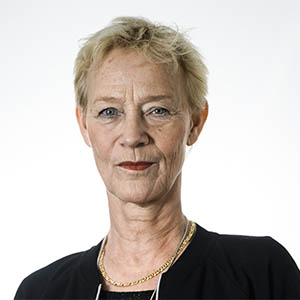Winner of Nobel Prize in Economics researches gender differences in labor market
Anna Wahl, KTH, comments

Claudia Goldin, Harvard University, receives the Nobel Memorial Prize in Economics for her research on why women are heavily underrepresented and earn less than men in the labor market globally.
"It is really great that the prize goes to an economic historian like Claudia Goldin, who is now receiving attention for her socially important research," says Anna Wahl, Professor of Gender, Organization and Management at KTH.
Claudia Goldin
has provided an overall picture of how women's incomes and participation in the labor market have developed in relation to men's in recent centuries.
“I view it as positive and significant that she has studied how women's income situations have developed in the perspective of 200 years,” says
Anna Wahl
.

Can this year's economics prize lead to increased awareness that can accelerate the reduction of the gap between men's and women's salaries?
“The hope is that more people will become aware of the continuing differences between men's and women's salaries and positions in the labor market. And of course this kind of economic analysis will also be useful in politics, when it becomes clear how different policy measures affect the labor market,” says Anna Wahl.
Claudia Goldin has used over 200 years of data from the US to explain how and why differences in wages and employment rates have changed over time. Some conclusions are that women are severely underrepresented in the global labor market and that when women do work, they earn less than men do.
Anna Wahl points out that not only more knowledge is needed, but also a willingness to take action to even out the differences between the situation of men and women in the labor market.
"This kind of analysis and good examples are valuable for strengthening the role of women in the labor market. There has been a real demand for this kind of recognition for researchers studying women's professional lives – professional lives that are still characterized by unpaid work. The female perspective provides a different way of interpreting the economy, which is important to acknowledge.”
She hopes that the Economics Prize winner will increase awareness of the size and relevance of the research field.
“The Economics Prize also draws the attention of students and young researchers to the existence of this scientific research field, and gives them insight into how gender equality in the labor market can strengthen the economies of entire countries in the future.
Text: Katarina Ahlfort
Illustration: Johan Jarnestad/The Royal Swedish Academy of Sciences
